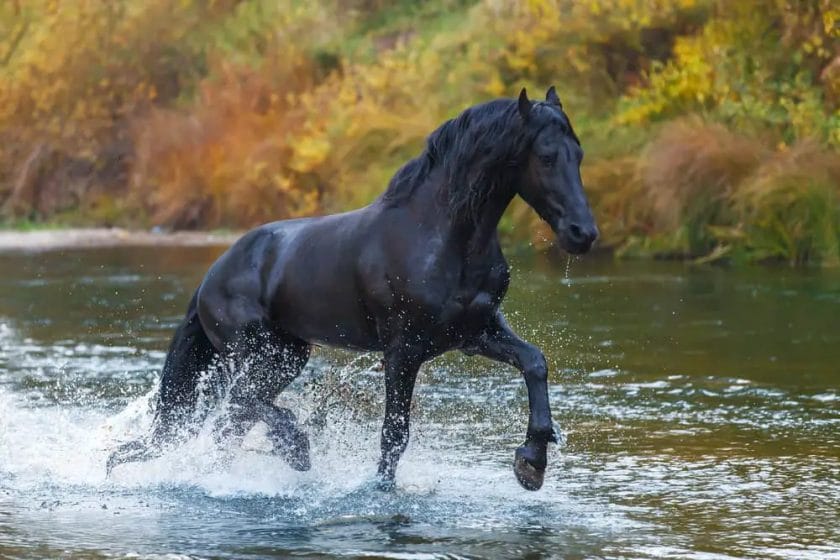When it comes to the difficult decision of euthanizing a horse, one of the concerns many horse owners have is the cost involved. The cost of putting a horse down can vary depending on several factors, including the location, the veterinarian’s fees, and any additional services that may be required. While there is no fixed price for euthanasia, it typically ranges from $200 to $1,000. It’s essential to consult with a trusted veterinarian to discuss the specific circumstances and costs associated with putting a horse down.

Comparing the cost of different euthanasia methods for horses
When the time comes to make the difficult decision to euthanize a horse, there are several factors to consider, including the cost of the euthanasia method. While cost should not be the sole determining factor, it is important to understand the financial implications of the different options available. In this section, we will compare the cost of various euthanasia methods for horses.
1. Injectable Euthanasia
One of the most common methods of euthanasia for horses is through the use of injectable medications. This method involves the administration of a lethal dose of a drug, typically pentobarbital, which induces a peaceful and painless passing. Injectable euthanasia is typically performed by a veterinarian.
The cost of injectable euthanasia can vary depending on factors such as the region, the veterinarian’s fees, and any additional services provided. On average, the cost can range from $200 to $600. This includes the cost of the euthanasia drugs, the veterinarian’s visit, and the disposal of the horse’s remains.
2. Gunshot Euthanasia
Gunshot euthanasia is another method that is sometimes used for horses, particularly in rural areas where access to a veterinarian may be limited. This method involves the use of a firearm to deliver a fatal shot to the horse’s head, aiming for the brain to ensure a quick and humane death.
While gunshot euthanasia may appear to be a lower-cost option, it is important to note that additional factors come into play. This method requires the presence of a skilled shooter who can deliver an accurate and humane shot. Additionally, there may be legal and ethical considerations surrounding the use of firearms for euthanasia.
3. Chemical Restraint and Overdose
Chemical restraint and overdose is a method that involves administering a large dose of sedatives to the horse, followed by a lethal overdose of euthanasia drugs. This method is typically reserved for cases where other methods may not be feasible, such as aggressive or dangerous horses.
The cost of chemical restraint and overdose can vary depending on factors such as the amount and type of sedatives and euthanasia drugs required, as well as any additional veterinary services. On average, this method can cost anywhere from $400 to $1,000 or more.
4. Carbon Dioxide Euthanasia
Carbon dioxide euthanasia involves administering a controlled concentration of carbon dioxide gas to the horse, inducing unconsciousness and eventually leading to death. This method is considered to be painless and humane when performed correctly.
The cost of carbon dioxide euthanasia can vary depending on factors such as the equipment used and any additional services provided. On average, this method can cost around $300 to $500.
5. Remote Pharmaceutical Euthanasia
Remote pharmaceutical euthanasia is a newer method that involves the use of a remotely activated device to administer a lethal dose of injectable euthanasia drugs to the horse. This method allows for a more controlled and precise administration of the drugs.
The cost of remote pharmaceutical euthanasia can vary depending on factors such as the cost of the device and the euthanasia drugs used. On average, this method can cost around $500 to $800 or more.
Summary
When considering the cost of different euthanasia methods for horses, it is important to remember that the financial aspect should not be the sole determining factor. The welfare and well-being of the horse should always be the top priority.
Injectable euthanasia is a commonly chosen method due to its effectiveness and the presence of a veterinarian during the process. The cost of injectable euthanasia can range from $200 to $600.
Gunshot euthanasia may be a lower-cost option, but it requires a skilled shooter and may have legal and ethical considerations. Chemical restraint and overdose may cost anywhere from $400 to $1,000 or more, depending on the specific circumstances.
Carbon dioxide euthanasia typically costs around $300 to $500, while remote pharmaceutical euthanasia can range from $500 to $800 or more.
Ultimately, the decision of which euthanasia method to choose should be made in consultation with a veterinarian, taking into account the horse’s individual needs and circumstances.

Budget-friendly options for horse euthanasia
When it comes to euthanizing a horse, the cost can be a concern for many horse owners. However, it is important to ensure that the process is carried out in a humane and dignified manner. In this section, we will explore some budget-friendly options for horse euthanasia that can help horse owners navigate this difficult decision without breaking the bank.
1. On-site euthanasia
On-site euthanasia is a cost-effective option for horse owners who may not have the means to transport their horse to a veterinary clinic. Many large animal veterinarians offer on-site euthanasia services, where they come to your location to perform the procedure. This eliminates the need for transportation costs and can be a more convenient option for both the horse and the owner.
2. Non-profit organizations and universities
Some non-profit organizations and universities offer low-cost or subsidized euthanasia services for horses. These organizations often have veterinary programs or clinics that provide affordable options for horse owners. By partnering with these organizations, horse owners can access euthanasia services at a reduced cost while still ensuring proper care and compassion for their horse.
3. Donation to veterinary schools
Another option to consider is donating your horse’s body to a veterinary school. Some veterinary schools accept donations of euthanized horses for educational purposes. In these cases, the cost of euthanasia may be covered by the school, making it a more budget-friendly option. However, it’s important to note that not all veterinary schools accept horse donations, so it’s advisable to inquire with your local veterinary schools beforehand.
4. Burial or cremation
Choosing to bury or cremate your horse may also be a more budget-friendly option compared to other methods. You can opt for a home burial if local regulations permit or explore communal burial options offered by some farms or pet cemeteries. Cremation may also be a viable option, with prices varying depending on the size of the horse and the type of cremation selected.
5. Financial assistance programs
There are a few financial assistance programs available for horse owners in need. These programs provide financial aid for euthanasia costs, helping to alleviate the burden on horse owners facing financial constraints. Research local and national equine welfare organizations to see if any assistance programs are available in your area.
6. Planning ahead
While it may not be a suitable option for everyone, planning ahead for euthanasia expenses can help ease the financial burden when the time comes. Setting aside funds specifically for end-of-life care and euthanasia can provide peace of mind and ensure that your horse receives the best possible care during this difficult time.
In summary, there are several budget-friendly options available for horse euthanasia. On-site euthanasia, non-profit organizations, and universities can provide low-cost services, while donating your horse’s body to a veterinary school may also be an option. Burial or cremation can be more affordable choices, and financial assistance programs are available to help those in need. Planning ahead by setting aside funds can also alleviate the financial burden. Horse owners should carefully consider these options while keeping the welfare and dignity of their horse as a top priority.

Exploring insurance options for covering horse euthanasia costs
When it comes to owning a horse, it’s important to plan for all aspects of their care, including end-of-life decisions. Euthanasia is a difficult topic, but it’s a reality that many horse owners have to face at some point. Not only is it emotionally challenging, but it can also be financially burdensome. That’s why it’s crucial to consider insurance options that can help cover horse euthanasia costs.
1. Equine Mortality Insurance
Equine Mortality Insurance is a type of insurance specifically designed to cover the loss of a horse due to death. While it won’t cover euthanasia costs directly, it can provide financial assistance in the event that your horse needs to be euthanized due to illness, injury, or other covered causes. It typically covers the value of the horse and may also include additional benefits like reimbursement for euthanasia fees.
It’s important to carefully review the policy details and exclusions of Equine Mortality Insurance to ensure that euthanasia costs are covered. Some policies may have specific requirements or limitations, such as requiring the euthanasia to be performed by a licensed veterinarian. Consulting with an insurance professional can help you understand the coverage and choose the right policy for your horse’s needs.
2. Major Medical and Surgical Insurance
Another insurance option to consider is Major Medical and Surgical Insurance. This type of coverage is designed to provide financial assistance for veterinary expenses, including euthanasia. While it may not cover the entire cost, it can help alleviate some of the financial burden associated with end-of-life care.
Major Medical and Surgical Insurance typically covers a wide range of veterinary treatments, including surgeries, diagnostics, medications, and euthanasia. However, it’s essential to review the policy carefully to understand the coverage limits, deductibles, and any exclusions that may apply.
3. Liability Insurance
In some cases, liability insurance can help cover euthanasia costs if the decision to euthanize is made for safety reasons, such as a horse with aggressive behavior. Liability insurance is typically carried by facility owners or equine professionals, but individual horse owners may also opt for this coverage.
Liability insurance can protect against claims and lawsuits arising from accidents or incidents involving your horse. While it may not directly cover euthanasia costs, it can provide financial protection in case you are legally required to euthanize your horse for the safety of others.
4. Care, Custody, and Control Insurance
Care, Custody, and Control (CCC) Insurance is another type of coverage that horse owners may consider. It provides protection for situations where you are responsible for the care and control of someone else’s horse, such as if you are boarding or training the horse.
While CCC Insurance may not directly cover euthanasia costs for your own horse, it can be beneficial if you are in a situation where you need to make the decision on behalf of someone else’s horse. This type of insurance can provide financial assistance in case you are legally responsible for euthanizing the horse under your care.
Summary
Exploring insurance options for covering horse euthanasia costs is an important step for every responsible horse owner. Equine Mortality Insurance, Major Medical and Surgical Insurance, Liability Insurance, and Care, Custody, and Control Insurance are some of the options available to help alleviate the financial burden associated with end-of-life care. It’s crucial to carefully review policy details and consult with insurance professionals to choose the right coverage for your horse’s needs. By planning ahead and having appropriate insurance in place, you can ensure that you are prepared for the difficult decisions that may arise throughout your horse’s life.
Financial Assistance Programs for Horse Owners Facing Euthanasia Decisions
Being a horse owner comes with many responsibilities, including making difficult decisions about the welfare of our equine companions. In some cases, horse owners may find themselves facing the heartbreaking decision of euthanasia due to financial constraints. However, there are organizations and programs available that can provide financial assistance to help alleviate some of the burden. This article will explore some of these programs and how they can support horse owners during these challenging times.
1. The Assistance Fund for Horses
The Assistance Fund for Horses is a non-profit organization dedicated to helping horse owners in need. They offer financial assistance for euthanasia services to horse owners who meet their criteria. To apply for assistance, horse owners can visit their website and fill out an application form. The organization reviews each application carefully and provides support to those in the most dire financial circumstances.
2. Equine Welfare Assistance Group
The Equine Welfare Assistance Group is another organization that provides financial support to horse owners facing euthanasia decisions. They offer assistance with euthanasia costs, as well as support for other medical expenses and basic equine care. Horse owners can contact the group directly to inquire about their services and eligibility requirements.
3. Local Animal Shelters and Rescues
Many local animal shelters and rescues also offer financial assistance programs for horse owners in need. These organizations understand the difficulties faced by horse owners and strive to support them during challenging times. It is worth reaching out to local shelters and rescues in your area to inquire about any available programs or resources.
4. Veterinary Schools and Clinics
Veterinary schools and clinics often have financial assistance programs or discounted services for horse owners who may be facing euthanasia decisions. These institutions understand the importance of providing compassionate care to animals and may be able to provide financial relief for horse owners in need. Contact your local veterinary school or clinic to inquire about any available programs or options.
5. Online Fundraising Platforms
In recent years, online fundraising platforms have become popular for individuals seeking financial assistance for various causes. Horse owners facing euthanasia decisions can create a fundraising campaign on these platforms to reach out to their community and beyond for support. Websites such as GoFundMe and Kickstarter can provide a platform to share their story and raise funds to cover euthanasia costs.
In summary, horse owners facing financial constraints and difficult euthanasia decisions do not have to face these challenges alone. There are various organizations, local resources, and online platforms available to provide financial assistance and support. It is essential for horse owners to reach out and explore these options to ensure their beloved equine companions receive the care they deserve even in difficult times.
FAQs
How much does it cost to put a horse down?
The cost of euthanizing a horse can vary depending on factors such as location, veterinarian fees, and additional services. On average, the cost can range between $300 and $1,000. It’s best to contact local veterinarians for an accurate estimate in your area.
How long does it take for a horse to be put down?
The process of euthanizing a horse typically takes a few minutes. It involves administering a lethal injection, usually a combination of drugs, that ensures a peaceful and painless passing for the horse.
What are the options for horse disposal after euthanasia?
After euthanasia, there are several options for horse disposal including burial, cremation, or rendering. Burial may require finding an appropriate location and complying with local regulations, while cremation and rendering services can be arranged through veterinary clinics or specialized companies.
Conclusion:
In conclusion, the cost of euthanizing a horse can vary depending on several factors such as the location, the veterinarian’s fees, and any additional services required. Generally, the average cost ranges from $300 to $1,000. It is important to consider the humane aspects of euthanasia and consult with a professional veterinarian to ensure the process is handled with compassion and expertise. While the financial aspect is a consideration, the well-being and comfort of the horse should always be the top priority. Properly researching and understanding the costs associated with euthanasia can help horse owners make informed decisions during difficult times.
